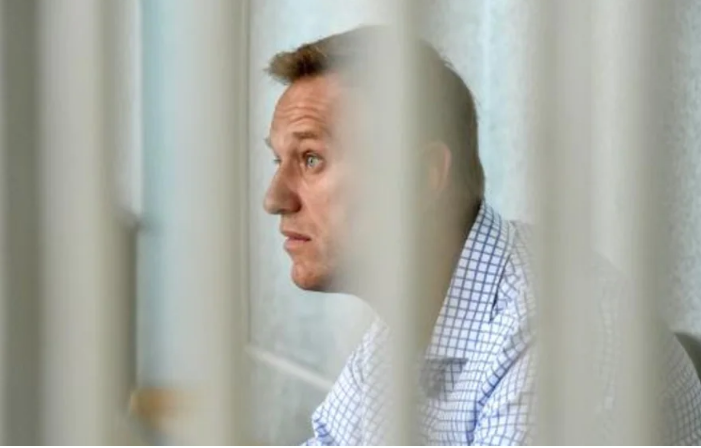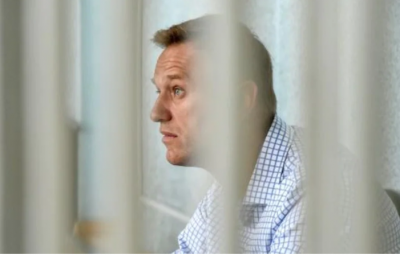Imprisoned Russian opposition leader Alexei Navalny conducted his first media interview from prison, comparing it to a Chinese labor camp, stating that he is forced to watch Russian state television for eight hours a day. Navalny, who has built his political life fighting and exposing corruption in Russia, is serving time in a high-security prison in Pokrov, located 100 kilometers east of Moscow.
In an interview with the American newspaper "The New York Times," published on Wednesday, he noted that the days of strenuous work in Soviet camps are over, replaced by what he described as "psychological violence" through brainwashing and propaganda. He mentioned, "You might picture men with bulging muscles, tattoos, and iron teeth fighting with daggers for the best bed by the window." He added, "But you have to imagine something like a Chinese labor camp, where everyone lines up and surveillance cameras are hanging everywhere. There is constant control and a culture of informing."
He confirmed that the guards monitor them as they watch hours of government propaganda, and they are not allowed to read or even write. Nevertheless, Navalny remains optimistic about the future of Vladimir Putin's regime, stressing that it will eventually come to an end. He stated, "Sooner or later, this mistake will be corrected, and Russia will move forward to a democratic and European path of development. Because this is simply what the people want."
He also reiterated his criticism of the United States and European governments for imposing sanctions on Russia, arguing that these sanctions harm the Russian people, not those in power. He noted that he has not been attacked by any of the inmates and has "enjoyed" preparing snacks with them.
Since his imprisonment in March, Navalny has not remained silent; he sent messages from prison and utilized social media to share updates. However, the interview with The New York Times marks his first since being incarcerated. This month, new charges were brought against Navalny that could extend his imprisonment by three years if convicted, and he will not be eligible for release until after 2024, the year scheduled for presidential elections in Russia.




